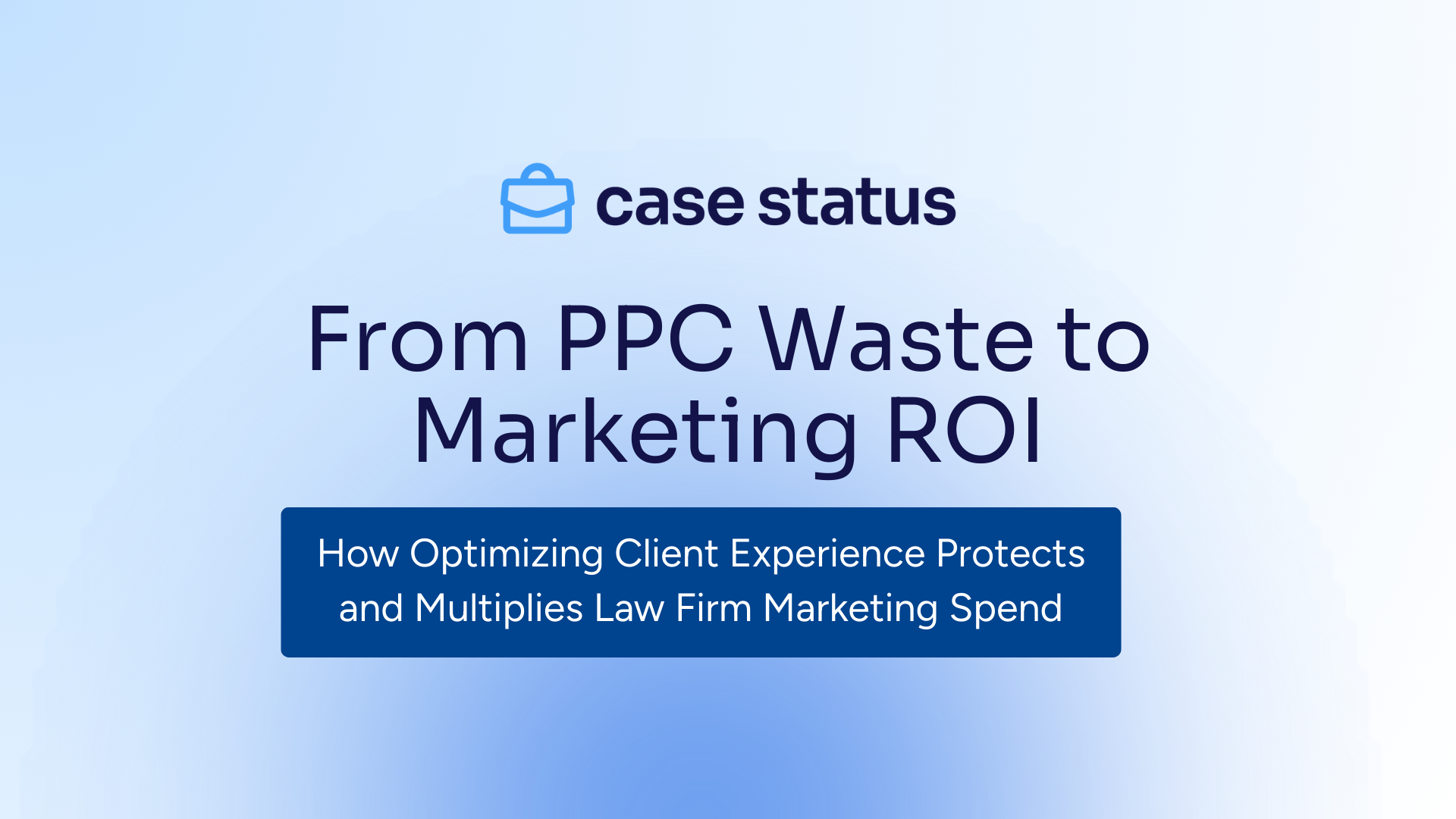
Law firms need legal software to thrive, but a lot of them still struggle to discern which platforms are worth their time. Many are hesitant to adopt software because of the learning curve — what lawyer has hours to spend transferring case files into a cloud and onboarding themselves and their staff?
The good news is that modern legal software companies are designed with ease-of-use in mind. They can be integrated into your practice in a few hours (maybe a weekend, if you have a ton of clients) and offer dozens of advantages ranging from automated billing to lead tracking.
In this post, we’ll explore what the best legal software programs have and how you can benefit from incorporating it into your law firm.

What Is Legal Software?
Legal software is software designed for lawyers to enhance their legal practice. These programs are optimized for automation and productivity, granting lawyers and their staff more time to focus on delivering greater service to their clients.
The legal process requires constant multitasking, but this can quickly become difficult for firms with dozens of clients. Between managing your inbox, invoicing, requesting payments, and sending appointment reminders, a law firm can lose half of its work day on administrative tasks.
Legal case management software can help lawyers work faster by using AI-powered research tools, contract analysis, and document generation. There are also CRMs — Client Relationship Management software — that help organize everything from marketing to accounting, messaging, and sales.
Then there’s the legal client app, which offers the end user the ability to interact with your firm without the need for constant contact. Instead of calling the office because they have a question, they can head onto the app, review their resources, and get the answers they need.
Case Status is the best law firm software on the market thanks to an intuitive design that supports both clients and lawyers alike. Our integrated partners allow law firms to pair Case Status interactions with their CRM, and clients have unlimited support through the form of text messaging, updates, and educational resources.
What Does Legal Software Do?
Legal software is adaptable, and you can find a program that’s designed to support your firm’s needs. Some legal software is highly specific, focusing solely on one type of legal task. Others are broader, offering law firms the ability to pick and choose which features they need at any given moment.
When you opt for a CRM, you get so much more than just relationship management. Your firm also gains access to tools that automate and streamline your most essential legal tasks, such as:
- Billing and electronic payments for clients
- Legal marketing management and analytics
- Time tracking to maximize billable hour revenue
- Financial reporting for law firms
- Calendaring for all your clients and consults
- Automated appointment reminders
- Customizable client intake forms for better lead generation
- Document requests and eSignature software
- Document automation with templates
The goal of legal software is to simplify the legal process, eliminate repetitive tasks, and give lawyers more time to focus on actually doing what they were trained to do. Say goodbye to hours of struggling with Word, Quickbooks, and Google Analytics, and say hello to a user-friendly software that acts as the ultimate legal assistant.
Who Uses Legal Software?
The best legal software solutions benefit legal teams that need to coordinate multiple divisions into one platform. Instead of trying to juggle HR, accounting, marketing, and legal counsel independently, you can merge them into one system to get a more cohesive business structure.
Modern law firms need to have a strong team that ensures their clients are supported from every angle. This includes easy access to billing information, case status updates, and legal advice.
While a CRM is best when utilized in a team-based firm, it can also benefit solo lawyers trying to make a name for themselves. When you’re wearing all the hats in your practice, you need a tool that can provide you with impeccable organization and useful data to guide your business strategy.
Why is legal technology important?
Legal technology is crucial due to its ability to streamline and optimize various processes within the legal industry. By automating tasks and increasing efficiency, legal tech tools save time and reduce costs, making legal services more accessible. These tools also enhance accuracy, minimizing human error and improving the quality of legal work. Furthermore, legal technology provides valuable data analytics and insights, empowering lawyers to make informed decisions and improve their strategies. Lastly, legal tech promotes collaboration and communication, enabling legal professionals to work more effectively and efficiently. Overall, legal technology is essential for transforming the practice of law, improving client outcomes, and fostering innovation within the legal industry.
What Is the Most Popular Legal Software?
There are many types of legal software on the market, and we could write a lengthy legal software list that covers them all by name. Instead of doing that, we’ve broken down the most popular legal software into categories to help you better understand the role each one can play in your firm’s success.
Document Automation Software
This software uses artificial intelligence optimized for legal documentation to accelerate your productivity. Rather than struggling to draft the same documents over and over again, you can use a software that integrates with Microsoft Word to generate entire legal documents in seconds, complete with IF/THEN statements, customizable fields, and fill-in-the-blank clauses.
Financial Reporting Software
Law firms have so much on their plate that accounting can sometimes feel like an afterthought. Eliminate risky oversights and errors with law firm financial reporting. It’s automatic, always accurate, and offers in-depth visuals that help you better understand your firm’s financial performance.
You’ll typically find this type of software as part of a CRM. Synced with billing and payment processing, it’s a powerful software feature that helps you understand your firm's growth and make more informed decisions.
Time Tracking Software
Never lose another billable minute with legal time tracking software. You can use this CRM feature to monitor your workflows, track your flat-fee and pro bono cases, and even track how much time you spend responding to calls, writing emails, drafting documents, and consulting with clients.
Client Communication Software
One thing a lot of CRMs miss is a personalized client communication portal. That’s where Case Status comes in. Our legal client app is among the best legal software a firm can incorporate into its practice.
For one, we offer solutions that benefit both lawyers and clients. On the legal front, we offer automated individual and bulk messaging, integrated support with CRMs, and customer feedback to support your growth.
Clients get access to on-demand legal support, case updates, and real-time translation to make their experience as easy as possible.
What’s more, Case Status goes the extra mile to help you stay top-of-mind with your clientele. We can arrange automated video and blog content, as well as holiday greetings and birthday wishes, to ensure your clients both past and present always feel supported.
Case Status also helps firms identify happy clients 95% more effectively. Take the guesswork out of marketing and know exactly who is going to write a positive review or refer your firm to others.
Would you like to learn more about our product? We’d love to give you a demo. Contact us today to schedule a meeting with a member of our team.


.png)
